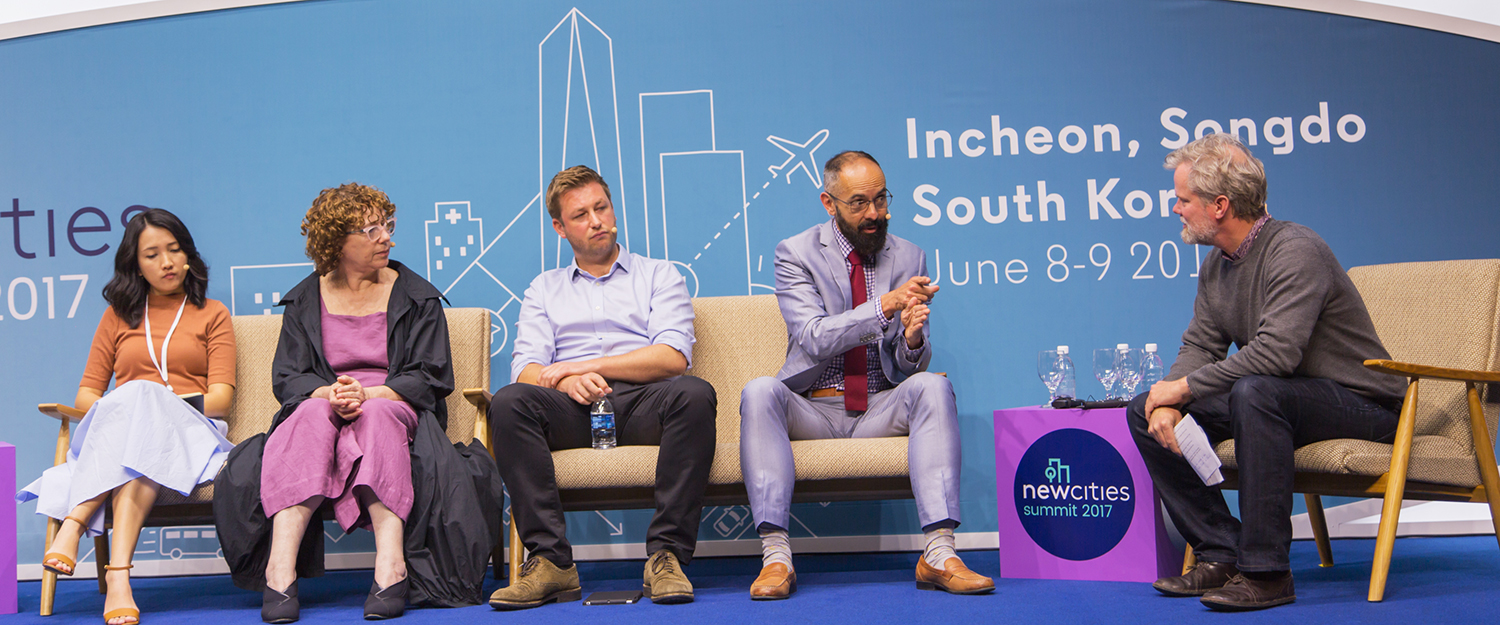
The Crowdsourced City
July 19, 2017 — Blog
This post is part of our Thriving Cities discussion series, following the sixth edition of the NewCities Summit in Incheon Songdo, South Korea in June 2017.
Around the globe, the last decade has seen an unprecedented mobilization from civil society to ensure more accountability and transparency from local governments. In this context, crowdsourcing and participatory budgeting have emerged as popular mechanisms allowing citizens to shape their surroundings.
Involving citizens in decision-making is key to building a flourishing community and promoting empowerment, ownership, inclusion and pride in one’s city. Chris Gourlay, Founder of the civic crowdfunding platform Spacehive, said “crowdfunding allows for collaboration beyond what the state can do and beyond what tax dollars can accomplish. Everyone is in it together.” He also emphasized that we need to get the balance right between strategic leadership coming from the public sector and the involvement of the citizens.
Can these participatory approaches be formally included in the city planning process? Christopher Cabaldon, Mayor of West Sacramento says yes, but believes crowdsourcing should be focused on gathering abstract opinions from citizens rather than questioning them about mundane details related to municipal governance.
Mayor Cabaldon brought forward the idea of a “Tinder for cities” – a platform that would present citizens with images capturing different city scenarios that would enable them to choose their ideal city by swiping left or right. “Crowdsourcing should be outcome-focused,” he said.
Mizah Rahman, Co-founder and Director of Participate in Design, agreed with panelists that “crowdfunding makes participant engagement much easier and much more interesting,’’ but asserted her preference for a more qualitative approach.
Rahman’s non-profit design organisation helps neighbourhoods and public institutions design community-owned spaces and solutions. She believes power still resides in talking directly to the people, speaking in favour of participant design that is all about creating with people and not just for people.
The panel also addressed other successful examples of crowd urbanism. Eve Picker, one of this year’s Global Urban Innovators, is the mastermind behind Small Change – a real estate equity crowdfunding portal to fund transformational real estate projects, helping communities identify and deliver high-impact urban development.
Small Change matches investors with developers who are raising funds for their real estate projects. The difference with other crowdfunding platforms is that people invest funds into real estate projects in return for equity. This is new terrain in the real estate space.
Picker recognized that crowdfunding is an alternative source of funding that is growing exponentially and said it would be a mistake not to seize the opportunity.